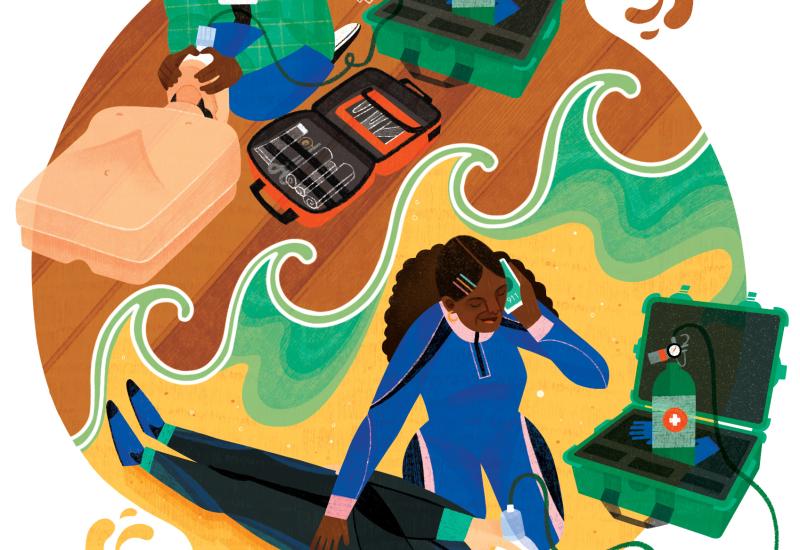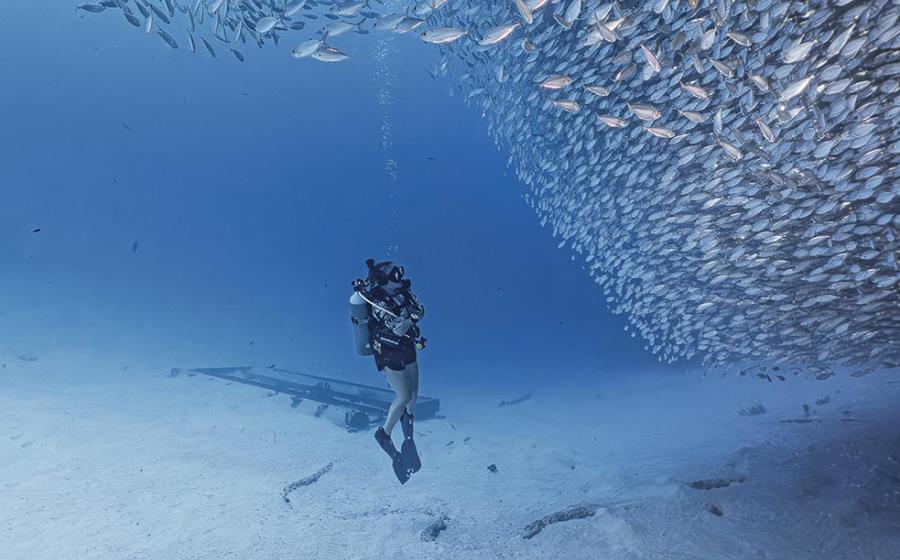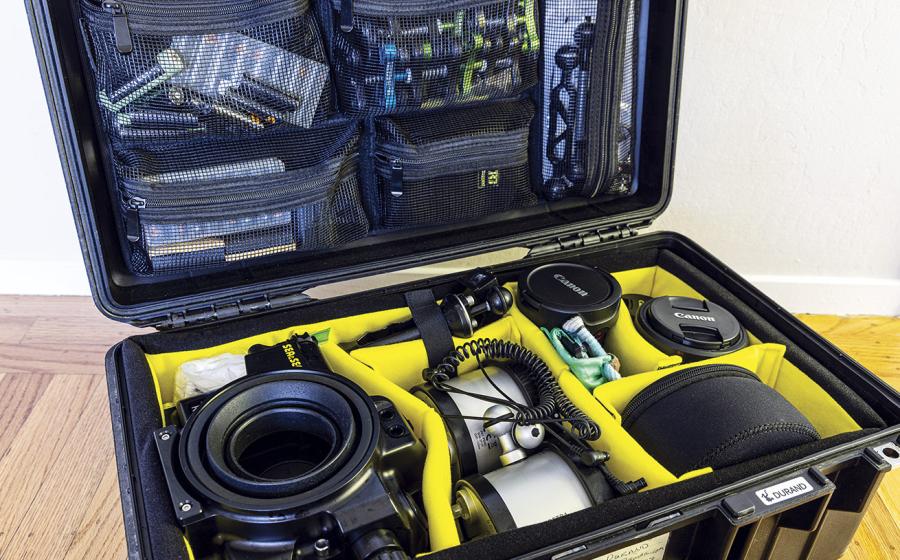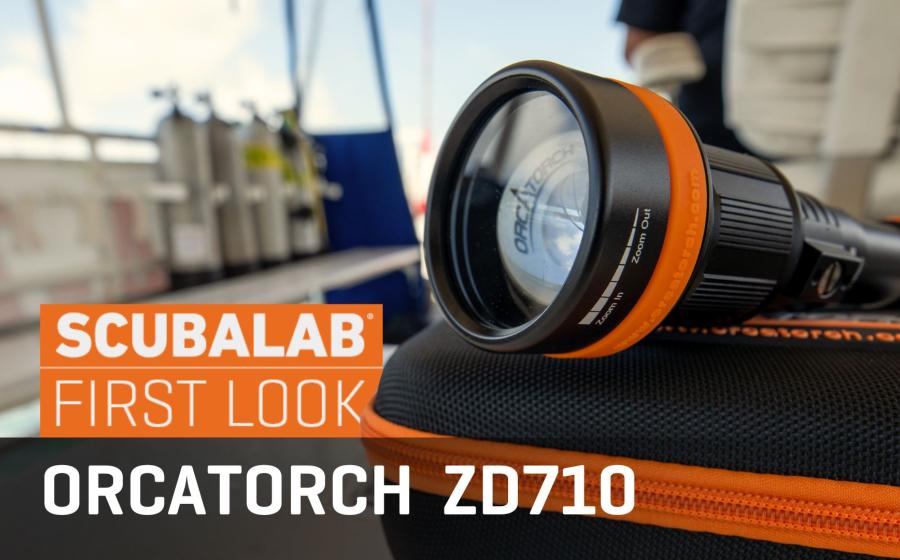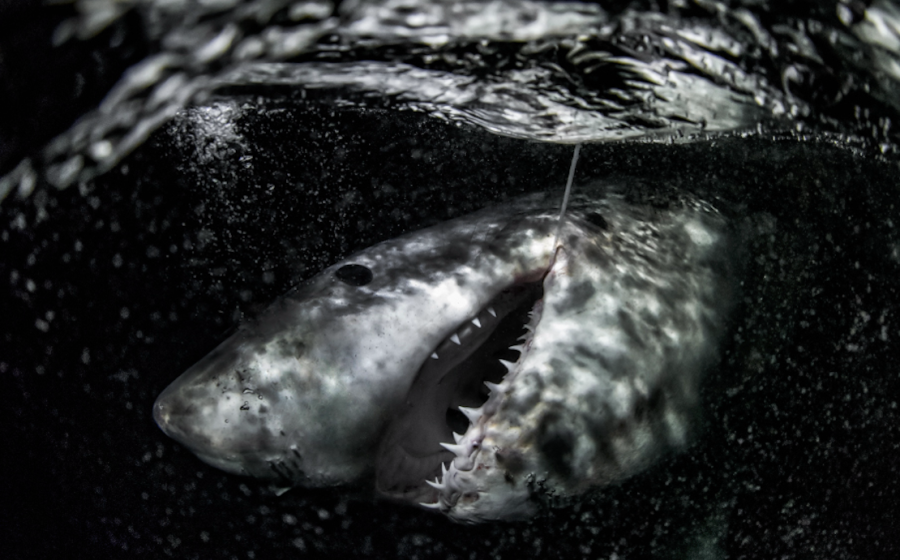What's the Most Important Dive Gear to Invest In?
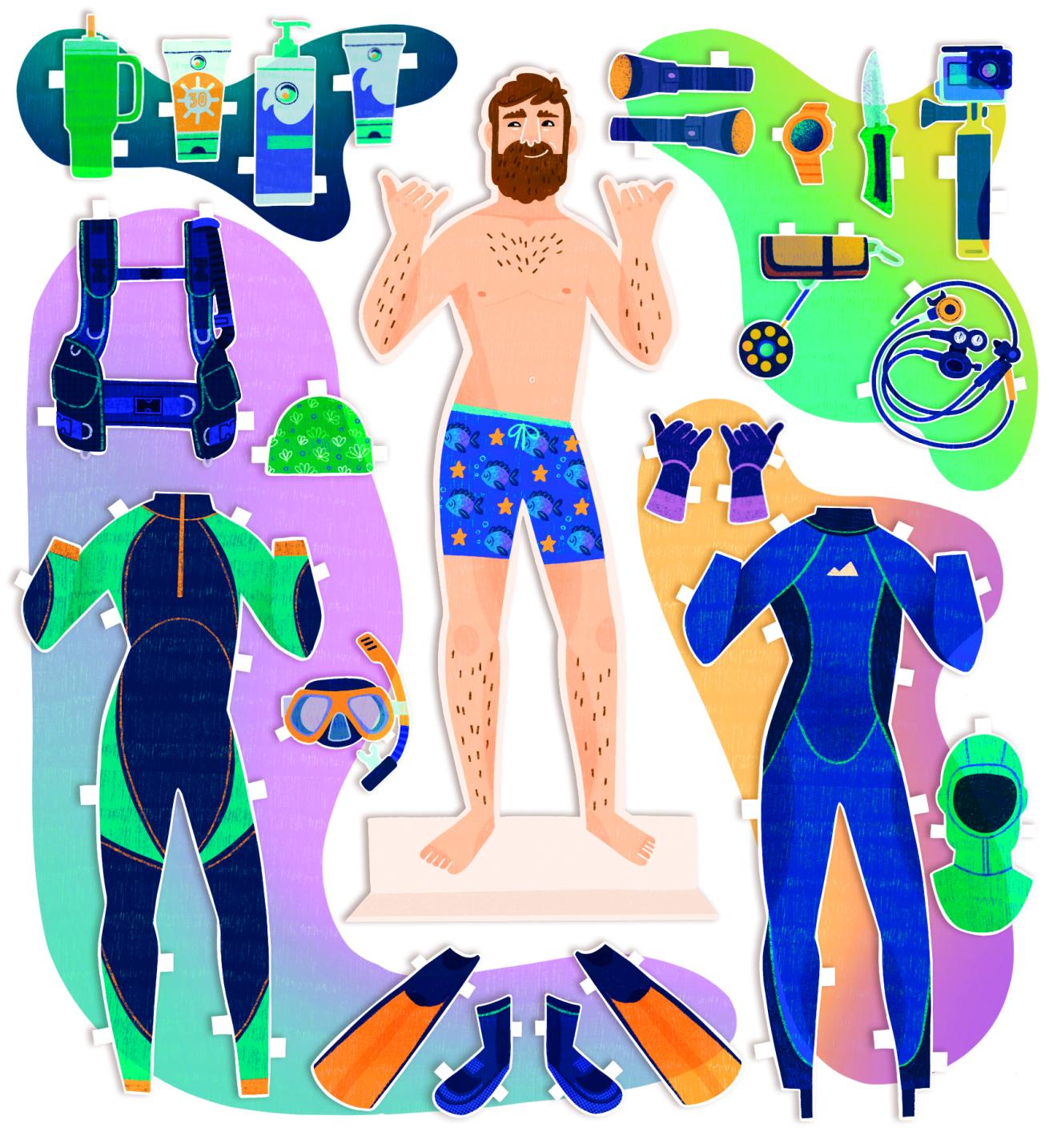
Illustration: Lauren Rebbeck
Dear Annie,
I am a new diver and I have only rented gear. What equipment should I invest in first, and what can I rent when I travel?
—Budgeting for bubbles
Dear Budgeting,
Welcome to the greatest sport in the world. Investing in personal gear gives you more confidence as a diver because you know what to expect from your gear every time you get in the water.
Your mask, snorkel, boots and fins are referred to as personal gear and likely the first pieces of gear you'll buy. I recommend open-heel fins with boots rather than full-foot fins. Many destinations have rocky reefs or other hazards. Boots keep your feet protected and warm during multiple-dive days.
After your personal gear, I suggest investing in an exposure suit, dive light, regulator and computer. A properly fitted wetsuit (or drysuit) makes all the difference in staying warm. There are exposure suits on the market to fit any body type, as well as custom-fit options. Dive lights make every dive better, not just night dives. A good light will restore color at depth and make you more visible underwater. Choose your reg based on ease of breathing and how it feels underwater. Always follow the manufacturers service guidelines. A dive computer is standard equipment in today’s diving world. Having your own means you’ll know how to use the features and have your dive data conveniently logged in one place.
Related Reading: How Can I Detect and Stay Safe In Down-Currents?
When you are ready to purchase pieces of your own kit, visit your local dive retailer to walk through product lines and options. Be prepared to try on equipment in different sizes. There are also lots of accessories including reef safe hair and skincare products to consider.
Dive equipment varies in features, fit and price. When you purchase an equipment package from your local retailer, you can often get deals with far superior products and pricing than you can find online. Your local shop also provides equipment service, air fills, advanced training and advice for local and international diving.
Rental BCDs are usually jacket style with weight integration, however, you will find many BCD options on the market with subtle but important differences. When diving in warm water, I love the Aqualung Rogue BCD because it is lightweight, streamlined and has D-rings for clipping off accessories. For cold-water diving, I use a Zeagle Ranger because it has the lift necessary to accommodate extra weight needed for my drysuit.
If you are diving in remote locations, you may need a reef hook, personal GPS marker or larger surface marker buoy. Some locations may not have these items for rent, so check if you will need to purchase them before arriving. When heading to cold-water destinations, you may need specialized equipment like an environmentally sealed regulator, thicker undergarments, a drysuit, dry gloves, a thicker hood and a backup computer.
Related Reading: How Can I Afford Diving With Limited Funds?
Many destinations advertise rental equipment, but you'll want to ask questions before you go, such as which brands/sizes they carry as well as service history. If they don't have what you need, you'll want to purchase or rent from your local dive retailer before you go.
Make sure you practice and feel comfortable with any new gear you add to your kit before bringing it to a new environment!

Ask Annie
PADI Master Scuba Diver Trainer Annie Crawley answers your most pressing questions about dive etiquette, training qualms and gear analysis with zero judgment and a whole lot of lived experience.
Have a question for Annie? Send to edit@padi.com with the subject "Ask Annie".



